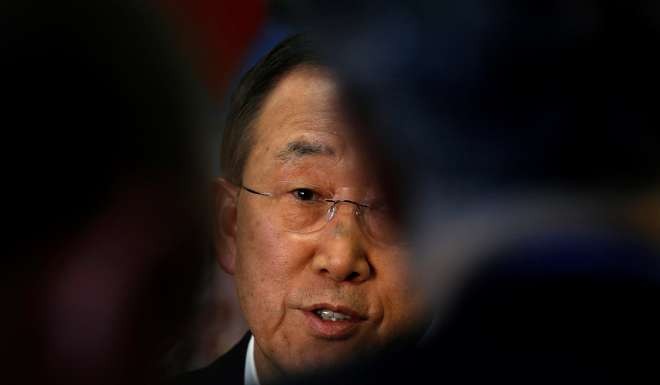
New | South Korea’s ruling party in turmoil as election looms
The scandal engulfing South Korean President Park Geun-hye has plunged her conservative Saenuri Party into turmoil and cast the country’s political landscape into disarray as it heads into an election year.
Park’s approval rating has been dragged to an all-time low of just 17.5 per cent in a Realmeter poll as prosecutors investigate whether an old acquaintance exerted inappropriate influence over state affairs and gained personally from their friendship.
The opposition has been moving carefully since the crisis involving Park’s friend Choi Soon-sil erupted, refraining from demanding the president step down or raising the idea of impeachment.
If Park gives up her position, the law requires that an election be held in 60 days. Analysts say the opposition is unprepared to take on the ruling party in such a high stakes contest so soon. The winner of such an election would be entitled to serve a full five-year term.
The presidential election is due in December 2017.
“If Park steps down, this will drive everyone mad as they have been preparing with a full year to campaign in mind,” said Kim Man-heum, head of the Korea Academy of Politics and Leadership.

The Saenuri Party, which unexpectedly lost its parliamentary majority in April, had already split into two factions as many senior members had sought to distance themselves from the unpopular Park even before the recent scandal.
United Nations Secretary-General Ban Ki-moon, who has long led opinion polls to be his country’s next president, even though he has not said whether he will enter the race, had been expected to join Saenuri if he runs.
The damaged Saenuri would be a less attractive home for Ban, potentially compelling him to opt for a new party if he runs.
South Korean political parties often dissolve and re-form under new names.
“It will be difficult for the Saenuri Party to regain the support they once had if they do not disband and form a new party,” said Rhee Jong-hoon, a commentator who runs Political Management Consulting Inc. “They are in complete ruin,” he said.

Over 20 Saenuri lawmakers formed a coalition this week calling for the party’s leadership to step down.
“Efforts to clarify this scandal and to normalise government work are direly needed, but we have felt under our current leadership that will be impossible,” said Oh Shin-hwan, a Saenuri lawmaker at a meeting for the coalition on Tuesday.
Park added another wild card to the political outlook last week when she proposed an amendment to the constitution that would allow presidents to serve multiple terms or establish a parliamentary system.
South Korean presidents serve a single five-year term and appoint a prime minister, whose role is largely administrative. It is an arrangement that critics say gives the president too much power but also turns them into ineffectual lame ducks as their tenures wind down.
Park would be prevented by law from serving another term, even if an amendment succeeds.
Eight of Park’s top aides have resigned and expectations are high she will replace the prime minister and some government ministers.
Opposition parties could form an alliance to push the constitutional amendment issue, which enjoys broad public support, once a new prime minister is in place.

